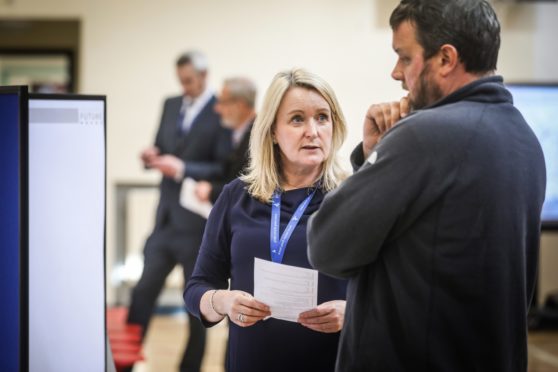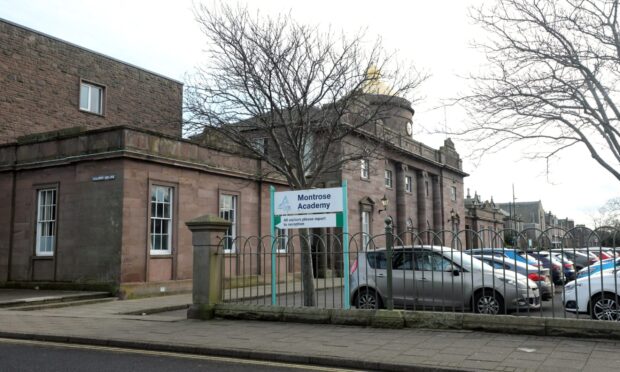Education chiefs have delayed further cuts to teaching posts in Angus amid fears head teachers have been forced to work unsociable hours after 40 positions were removed in a bid to save millions of pounds.
Savings of approximately £1.8 million have been made since August 2018 with the removal of 16 full-time equivalent (FTE) secondary teachers, 10 visiting specialists and 5.5 surplus primary teachers.
The cuts have also hit disadvantaged pupils hard as 8.5 additional teaching posts have also been scrapped in the most deprived areas.
It is hoped the authority will save a further £548,000 in the next five years as further posts are removed.
However reductions for the upcoming school year in 2021-22 have been postponed as council bosses opt to prioritise “educational recovery”. Instead additional staffing cuts will be spread more evenly from 2022-25.
School pressures
The authority heard how primary head teachers have had to bear the brunt of the cuts as they are forced to work in excess of their 35 hour weeks.
A survey launched by the Angus School Partnership received responses from approximately 60% of primary school leaders across the region.
All of the respondents dedicate their weekends to planning and around 80% say they are working more than 50 hours per week as they are forced to assist with staffing shortages.
Mike Callaghan, Angus local association secretary for teaching union EIS, urged the authority to reverse the cuts.
The policy of cutting budgets in education must not only stop but it must be reversed now.”
Mike Callaghan
He told the council’s children and learning committee on Thursday the cuts to the teaching staffing budget over the last two years had been “undeniably” felt by school staff.
“I spoke to this committee over a year ago warning of the combined impact of these cuts. This report essentially justifies everything that I was concerned about.”
An increased strain had been placed on teachers already working in schools across the region, he said, and would limit job opportunities for newly qualified teachers.
He added: “What the report cannot tell you is the impact on new and probationer teachers who after years of training, and more for some primary specialists, have found it nearly impossible to secure teaching posts in Angus this year.”
The number of visiting teachers has also been reduced in Angus which means primary school leaders have had to step in to cover reduced class contact time or staff absences.
Councillors voted to delay staffing cuts for the 2021-22 school year in order to assess the impact the pandemic has had on learning.
Mr Callaghan added: “I welcome the education report that the cuts made so far are unsustainable and that the impact on the remaining staff is also unsustainable.
“All of this is true before we add the Covid pandemic into the situation.
“The policy of cutting budgets in education must not only stop but it must be reversed now.”
Councillors agreed to the delay at a special meeting of the children and learning committee.
The report submitted to committee also raised fears many senior leadership roles, especially head teacher posts, are becoming less attractive because of the increase in workload.
Kelly McIntosh, director director of education and lifelong learning, said the authority had not been able to conduct a full review into the savings because of the coronavirus pandemic.
She said: “Continued saving scheduled until 2023-24 are subject to annual monitoring and during this school year, 2020-21, it has not be possible to carry out a full evaluation due to the circumstances we have been in.
“Postponing the savings scheduled for 2021-22 will allow us to carry out a full evaluation of the budget efficiencies made to date and allow us to fully understand the impact on the learning offer to our children and in particular in relation to our ability to reduce the poverty related attainment gap.”
Councillor Beth Whiteside, who represents Monifieth and Sidlaw, said the report was “frustrating” as it highlighted the removal of posts from schools in the most deprived areas.
A report submitted to committee acknowledged the disruption in learning caused by the pandemic.
School buildings remain closed to the majority of children and provision and engagement with remote learning vary, it said.
“A further reduction in teacher numbers will mean that we can provide less support at a time when our children and young people require more support than before.”











